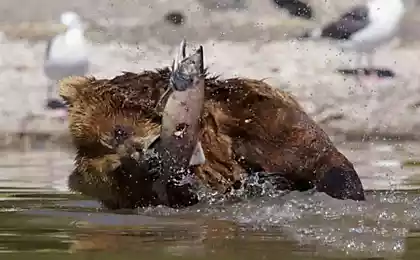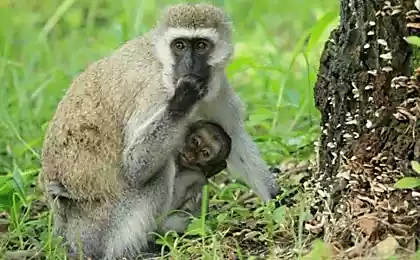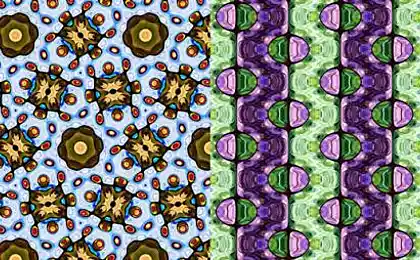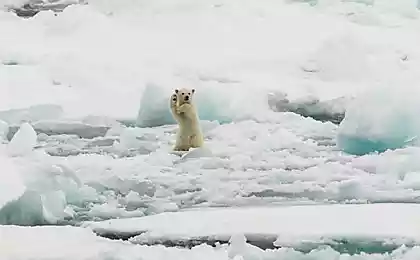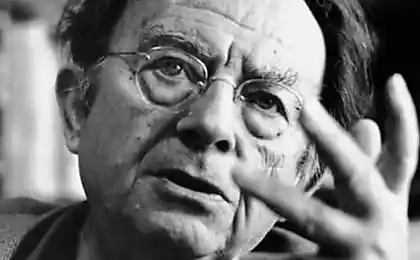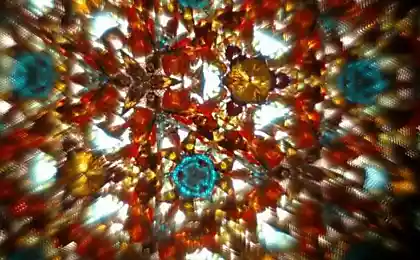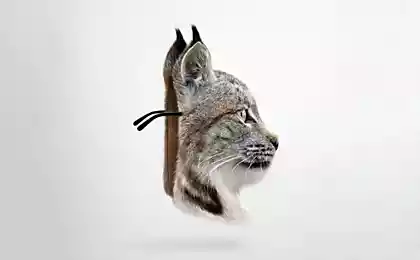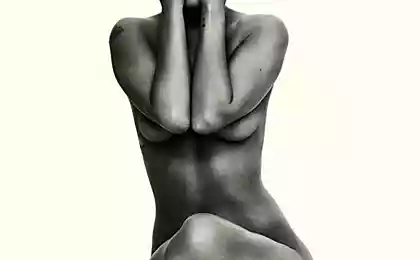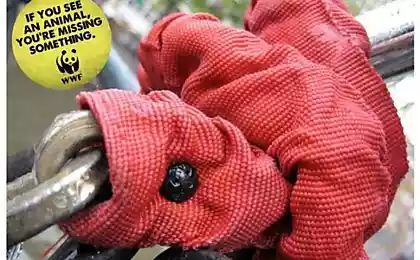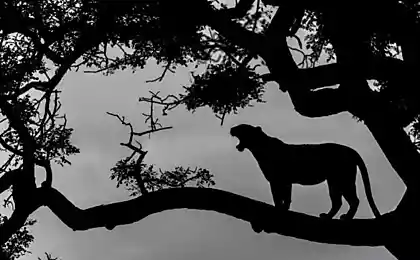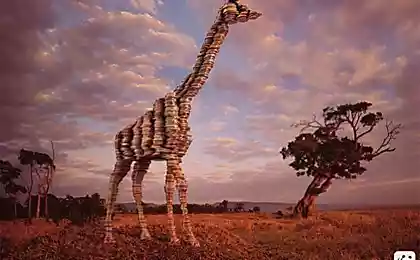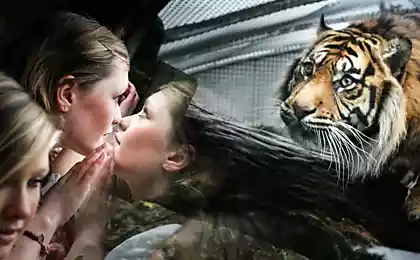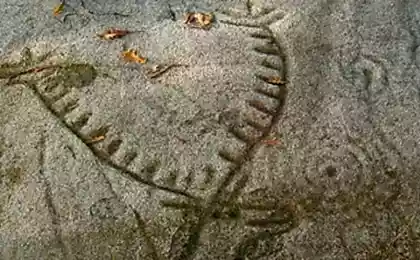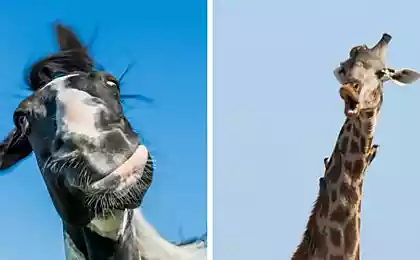1314
Patterns Wildlife
Beautiful patterns created by Mother Nature.
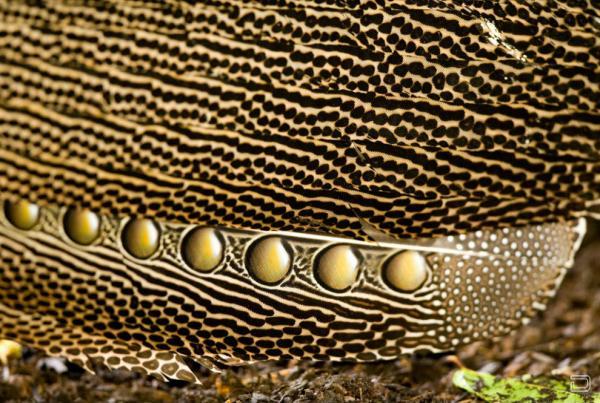
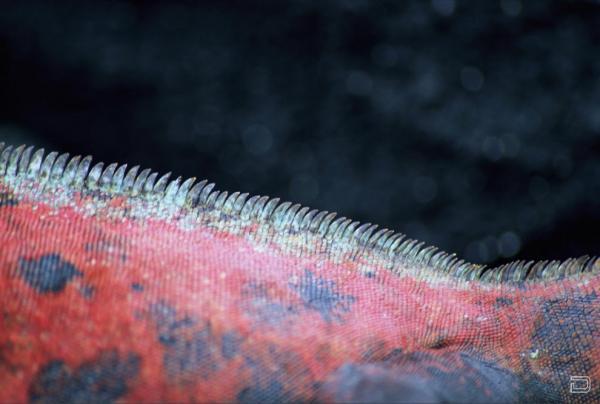
1. Scales helps protect the lizard from the harsh weather and predators. The marine iguana (Amblyrhynchus cristatus) - the unique species found in the Galapagos Islands. Despite its scaly covering, individuals of this species are still threatened with extinction because of the rats, feral cats and dogs that eat iguana eggs and their young. (Gina Martin)
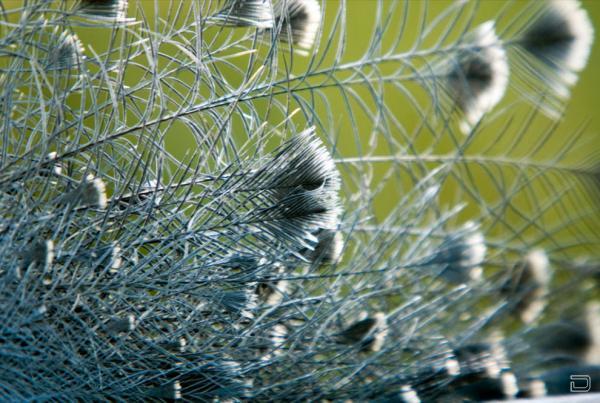
2. Grfignya Victoria Crowned Pigeon (Goura victoria) creates a whole bunch of gray and white. Discovered in tropical regions and relevant to the dodo, Crowned Pigeon has grfignya white feathers. Males usually display their feather hair, to attract females. (Tim Laman)
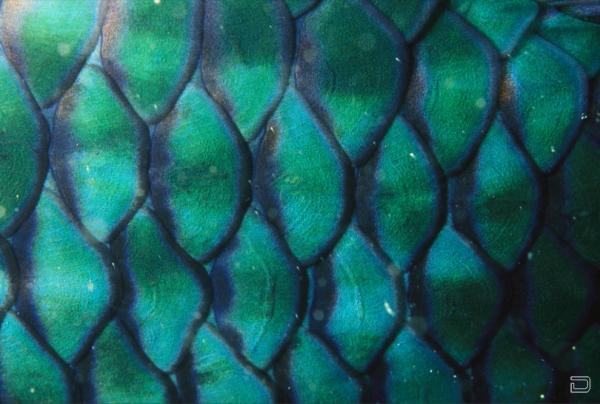
3. Imprinted off the coast of Borneo, this skarovaya fish had armor of iridescent green scales. The evolutionary link between feathers and scales seen in the development of bird embryos, which are covered with cells placode. Some of these cells grow into scales, such as the one that covers the legs of chicken, while the remaining are converted into feathers. (Tim Laman)
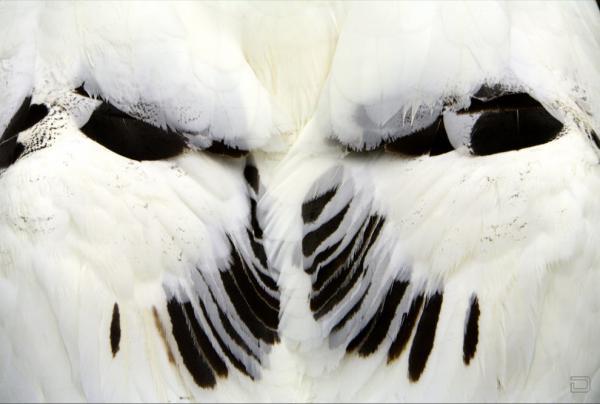
4. wandering albatross folds its wings during mating on the island of South Georgia, Antarctica. This indefatigable traveler had the largest wingspan reaching up to 3 to 5 meters, and she flew 805 km bird per day. (John Eastcott and Yva Momatiuk)
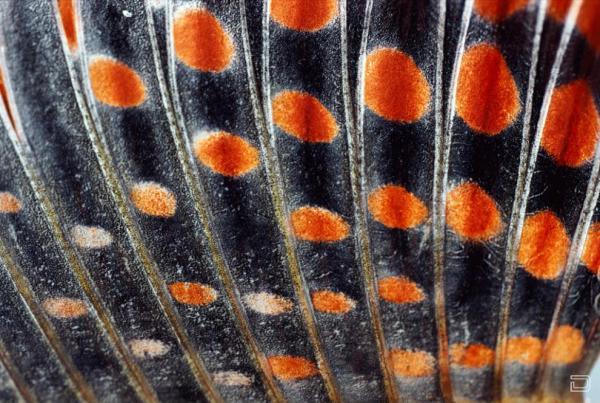
5. Orange point decorate fin of the fish photographed in Lake Baikal, Siberia, Russia. (Bill Curtsinger)
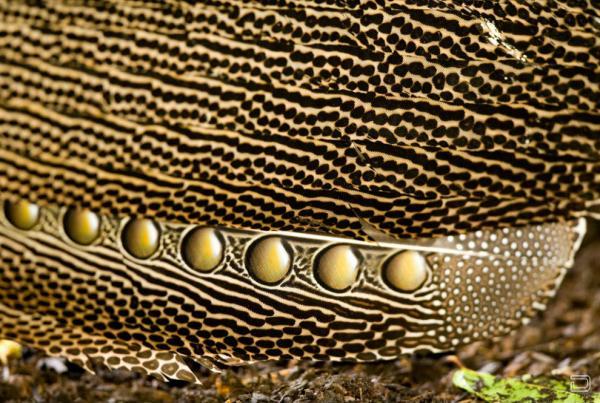
6. This male pheasant-Argus, living in South Asia, demonstrates these points on their feathers during courtship ritual. His plume towers over the head like a peacock. In addition to attracting females feathers are also used for insulation, flight and, in some cases, to help the bird to hunt and avoid predators. (Tim Laman)
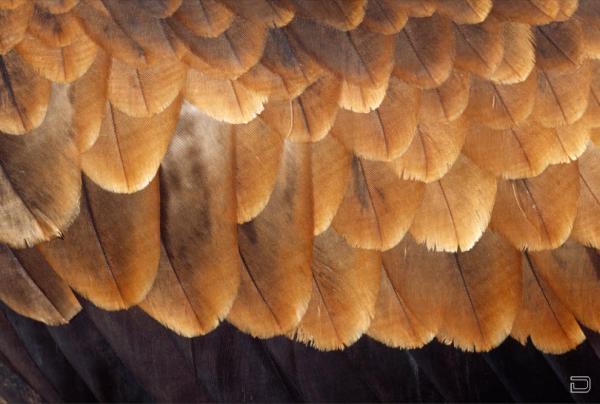
7. The wedge-tailed eagle feathers form a thin flap in this photo taken in the park Alice Springs in the northern part of Australia. From a central pen depart hundreds of hairs, called barbs. These barbs, in turn branched off other smaller hairs, some with grooves, some of the teeth, which bind together the barb that allows the bird to fly. (Jason Edwards)
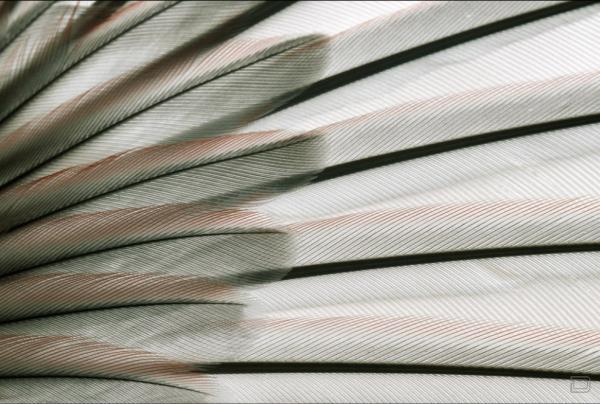
8. The feathers on the wing chernogorloy sparrow oatmeal blocked the light. When the bird reveals feathers to clean them, the barbs simply fold back themselves. (Tom Murphy)


1. Scales helps protect the lizard from the harsh weather and predators. The marine iguana (Amblyrhynchus cristatus) - the unique species found in the Galapagos Islands. Despite its scaly covering, individuals of this species are still threatened with extinction because of the rats, feral cats and dogs that eat iguana eggs and their young. (Gina Martin)

2. Grfignya Victoria Crowned Pigeon (Goura victoria) creates a whole bunch of gray and white. Discovered in tropical regions and relevant to the dodo, Crowned Pigeon has grfignya white feathers. Males usually display their feather hair, to attract females. (Tim Laman)

3. Imprinted off the coast of Borneo, this skarovaya fish had armor of iridescent green scales. The evolutionary link between feathers and scales seen in the development of bird embryos, which are covered with cells placode. Some of these cells grow into scales, such as the one that covers the legs of chicken, while the remaining are converted into feathers. (Tim Laman)

4. wandering albatross folds its wings during mating on the island of South Georgia, Antarctica. This indefatigable traveler had the largest wingspan reaching up to 3 to 5 meters, and she flew 805 km bird per day. (John Eastcott and Yva Momatiuk)

5. Orange point decorate fin of the fish photographed in Lake Baikal, Siberia, Russia. (Bill Curtsinger)

6. This male pheasant-Argus, living in South Asia, demonstrates these points on their feathers during courtship ritual. His plume towers over the head like a peacock. In addition to attracting females feathers are also used for insulation, flight and, in some cases, to help the bird to hunt and avoid predators. (Tim Laman)

7. The wedge-tailed eagle feathers form a thin flap in this photo taken in the park Alice Springs in the northern part of Australia. From a central pen depart hundreds of hairs, called barbs. These barbs, in turn branched off other smaller hairs, some with grooves, some of the teeth, which bind together the barb that allows the bird to fly. (Jason Edwards)

8. The feathers on the wing chernogorloy sparrow oatmeal blocked the light. When the bird reveals feathers to clean them, the barbs simply fold back themselves. (Tom Murphy)

